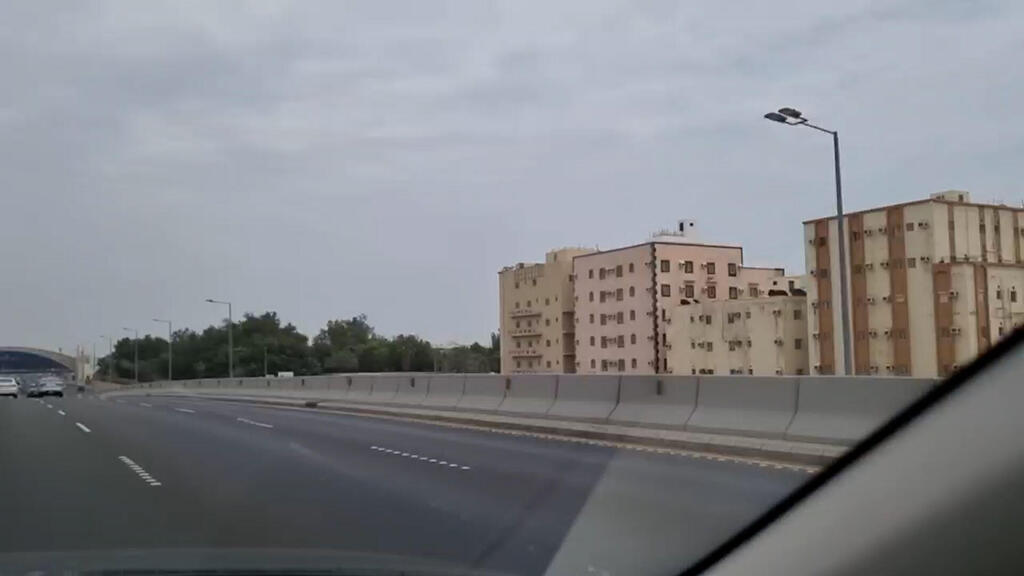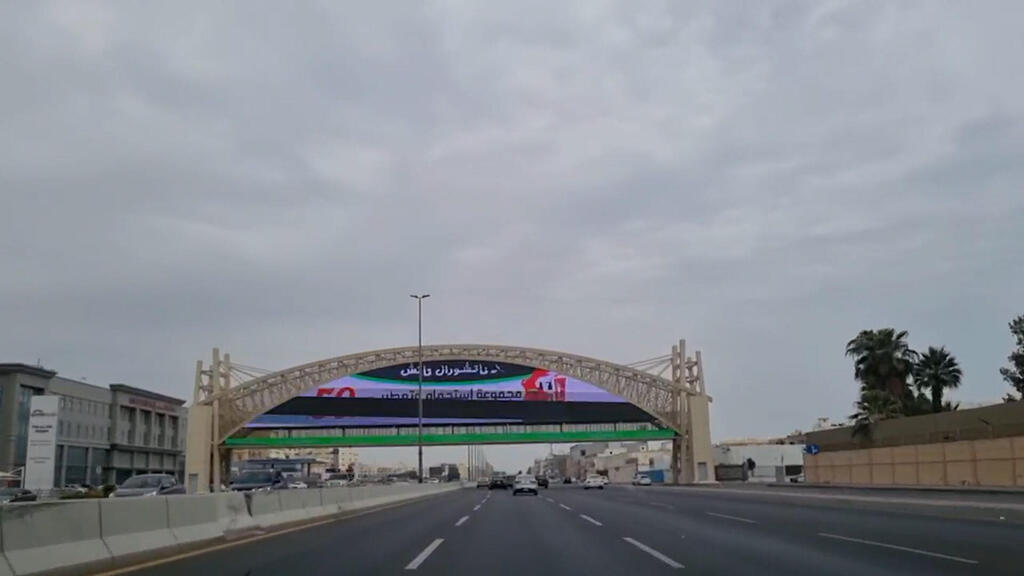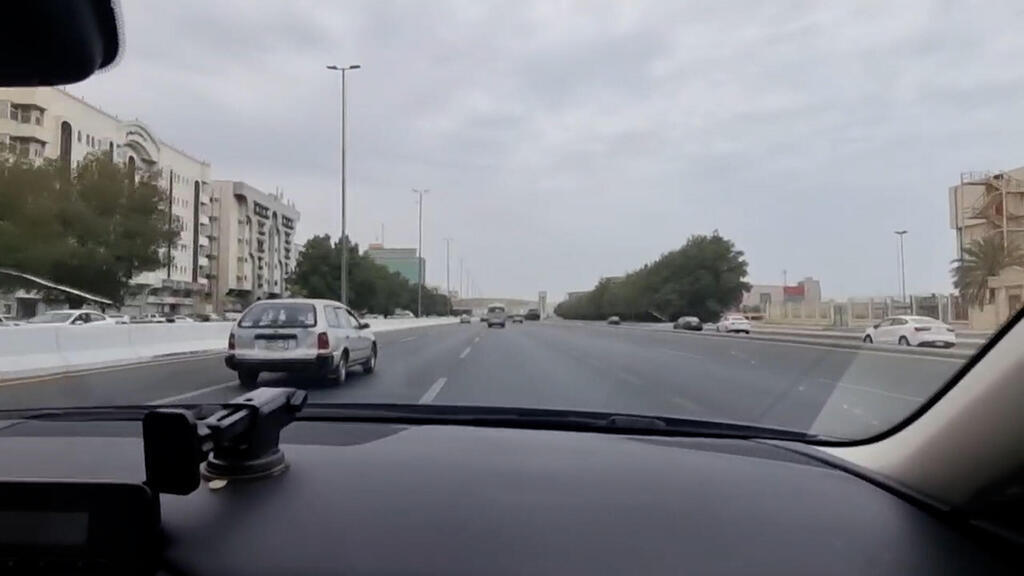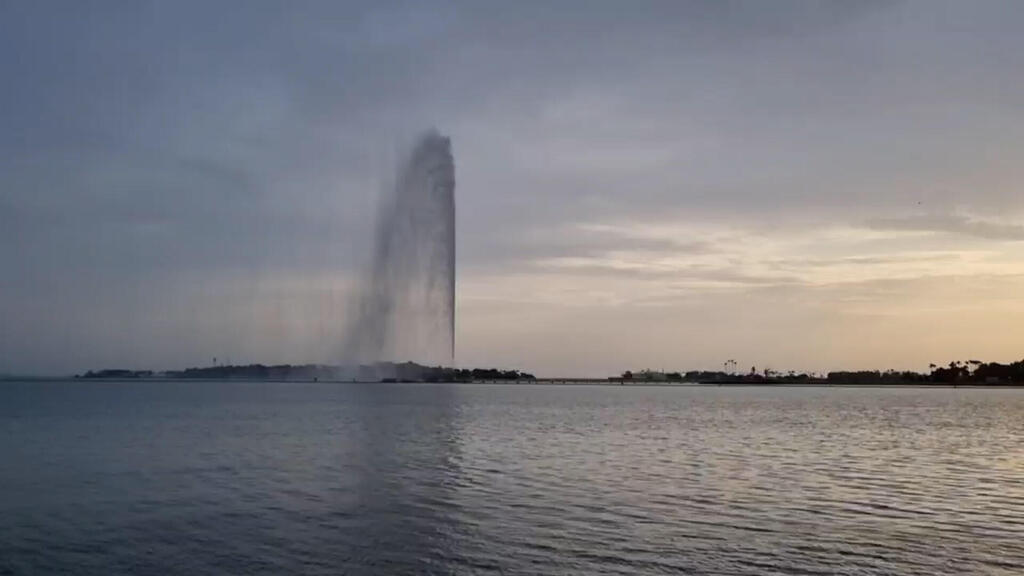The reaction of the taxi driver who drove me from the airport in Jeddah, could no be understated.
When I remind him that U.S. President Joe Biden was expected to arrive there within days, he pulls out his phone and shows me a short clip, ridiculing the American leader as he fumbles to explain his approach to Saudi Arabia.
"Saudi Arabia helped everyone and he was against us for a long time and wanted nothing to do with us," he says. "He incited against us despite us being good to him."
The Saudis are proud of their country and to them, anyone who offends the kingdom offends each- and- every-one of them personally.
They have an ax to grind with Biden, who they see as coming to them, hat in hand because of the energy crisis brought on by the war in Ukraine.
While Jerusalem is covered in American flags in honor of Biden's visit, there are non in Jeddah, Saudi Arabia's second largest city.
The main thoroughfare from the airport to the hotel and then on to the U.S. consulate, shows no signs of the president's pending arrival.
But the subject of Israel, is a different story. Small but meaningful clues show a shift in the Saudi position.
Israel is no longer erased. There is a gradual process in motion. Not only through recently revealed meetings of senior officials, but in small and seemingly marginal occurrences.
In the visa application for example, Israel has been added to the list of countries-of-birth. Upon landing in Jeda, I discover that I can put down my Israeli phone number and will receive a WIFI password in an SMS.
But what indicates the change more than anything, is the fact that I am granted a visa quickly and easily.
I enter the kingdom with a foreign passport but identify as an Israeli journalist and give my Tel Aviv address along with my Israeli phone number. The visa arrives within two days.
Jeddah, with its 4.6 million residents, is considered a liberal city, unlike the more conservative Riyadh.
It is looking to open to the world and as a coastal town, has enormous tourism potential. The changes the city is undergoing are tangible.
Entire neighborhoods seen from the highway, are being torn down to make room for new skyscrapers. The driver tells me some 36 such neighborhoods will ultimately disappear as the skyline transforms.
4 View gallery


Jeddah neighborhoods to be torn down to make room for skyscrapers
(Photo: Adir Yanko)
The change is dramatic in a city that is a fascinating mix of splendid mosques and a particularly pious ambience along-side long lines of people outside KFS and Duncan Donuts.
When I arrive at the hotel, I am greeted by a receptionist, not covered by a hijab, and on the boardwalk – a favored tourism spot- a group of Asian tourists is taking pictures with the King Fahd water fountain, the largest in the world as a backdrop.
The tourists are laughing and even walking hand in hand – which is uncommon in Saudi Arabia.
A group of local men stare in amazement. Jeddah is not Abu Dhabi or Dubai, far from it. But is still changing before their eyes.




